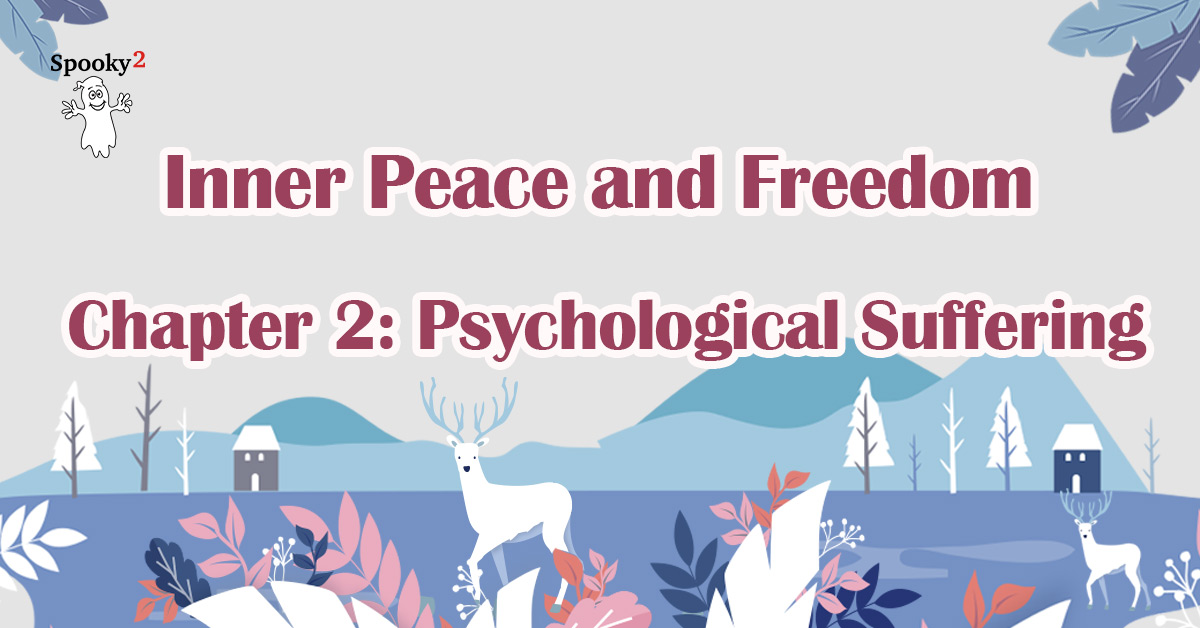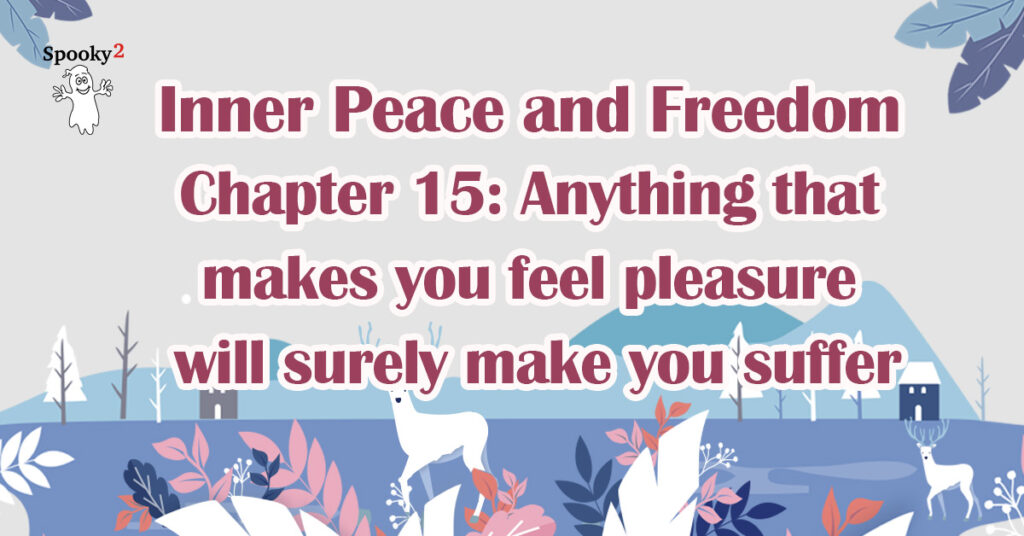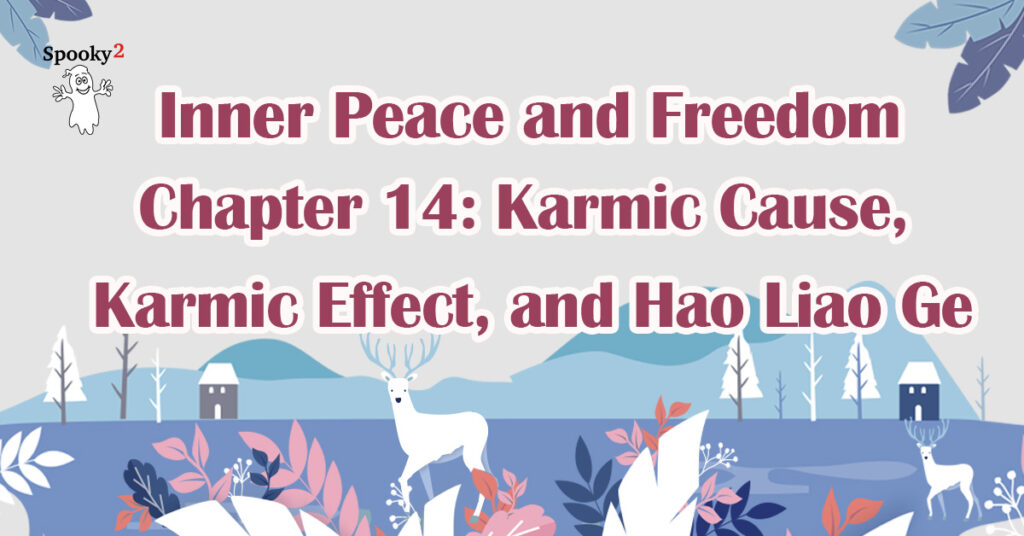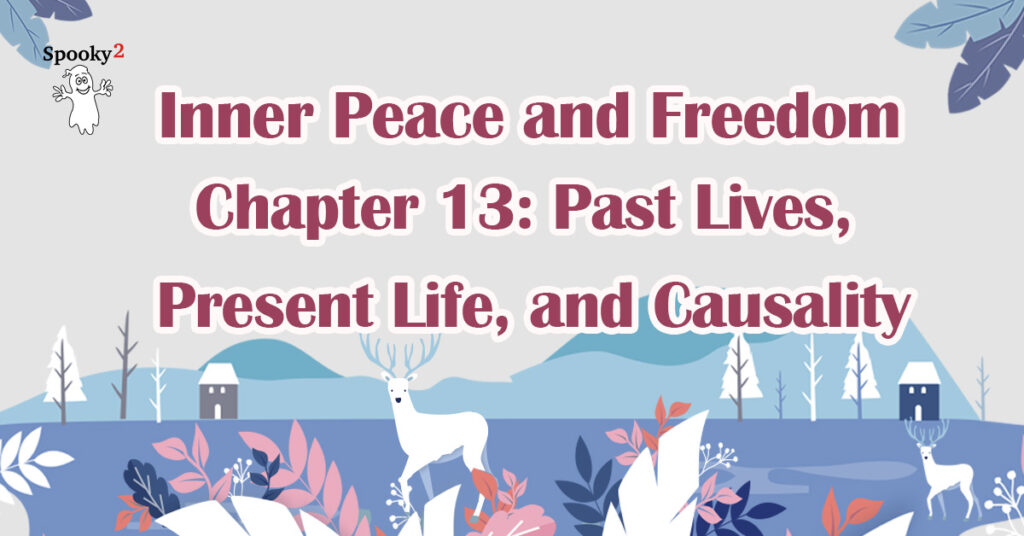Not getting what you want, separating from what you love, encountering what you dislike.
Apart from physical pain, we also have various sufferings in our minds.
Where do these sufferings come from?
There are three main types of psychological sufferings: the suffering of not getting what one wants, the suffering of separation from what one loves, and the suffering of encountering what one dislikes.
The suffering of not getting what one wants
When people crave or desire something, they strongly want to obtain it. However, before obtaining it, they must restrain their craving and desire. At that time, the suffering of not getting what one wants arises. The stronger the craving and desire, the greater the suffering. Meanwhile, they may also have various negative emotions, such as tension, anxiety, and worry.
For example, if a person wants to own an apartment, they may work hard, devote themselves, and do their utmost to achieve it. However, after years of hard work, the apartment price may have already increased before they have managed to save enough for a down payment. Or due to not being able to secure a loan, buying an apartment becomes even more hopeless. The suffering of not getting what one wants remains with them throughout their life.
When a person is attached to something or a career, there is a strong desire to achieve success. However, before achieving success, they must endure various hardships and setbacks and restrain the inner desire for success. The suffering of not getting what one wants continues to accompany them throughout their journey of striving.
For example, an athlete who has dedicated over a decade to intense training and competition finally earns an opportunity to participate in an international game. On the way to the game, right up until the night before, he is heavily burdened by the strong desire to win. Even at night, he can’t sleep well. During the game, the desire to win makes him feel extremely nervous. If he loses, he would feel frustrated, gloomy, and even cry. He can only endure the suffering and wait for the next opportunity.
The suffering of wanting to win but not being able to may motivate him to endure various hardships and continue intense training. There are numerous examples of the suffering of not getting what one wants.
In this high-tech era, humanity experiences numerous sufferings of not getting what one wants. Those who have no apartment want one; those who own an apartment desire a mansion; and those who own a mansion want more mansions. Those who have no car want one; those who own a car desire a luxury car; and those who own a luxury car want more luxury cars. Some even want to buy an airplane. The world’s richest person, Elon Musk, is even preparing to immigrate to Mars.
I believe that saving the Earth is more conscientious and meaningful than immigrating to Mars. If we take good care of our planet, it can be used for millions of years. Isn’t that better?
In terms of clothing, food, housing, and transportation, the more needs humans have, the more suffering of not getting what one wants they experience; the stronger their desire for those needs, the stronger the suffering of not getting what one wants.
Meanwhile, the suffering of not getting what one wants may be accompanied by other negative emotions, such as sorrow, sadness, inferiority complex, envy, complaint, and worry about gains and losses.
When one’s needs are met, the suffering of not getting what one wants is alleviated or eliminated, and negative emotions are also relieved and gradually fade away, leading to a sense of happiness.
The suffering of separation from what one loves
The suffering of separation from what one loves refers to the immense suffering that arises when loved ones are separated or unable to be together due to some reason. It may be accompanied by various negative emotions such as longing, tension, anxiety, and sorrow.
In earthly life, when men and women engage in romantic relationships, they develop strong emotional attachment to each other. If they are separated due to some objective reason, they will experience intense distress and attachment, enduring immense torment. The stronger the emotional attachment, the greater the suffering of separation. Emotional attachment brings great suffering.
If one partner in a romantic relationship dies, the surviving partner may be devastated. Some may even pass away in a depressed state. If one partner in a relationship falls in love with someone else, the other may be overwhelmed with strong anger or a desire for revenge. Some may even commit suicide or murder their partner. The incidence of homicides caused by romantic conflicts ranks second among all homicides.
Besides, the emotional attachment between parents and children, as well as among siblings, can also give rise to the suffering of separation from what one loves, resulting in various tragedies in life.
By the same token, if a beloved item is lost or damaged, it can also give rise to the suffering of separation from what one loves, as well as strong anger towards the one who damaged it. If the loss is due to one’s own carelessness, then strong regret and distress will also arise. This is also the suffering of separation from what one loves.
When a beloved person or item is regained, the suffering of separation from what one loves is alleviated or eliminated, and negative emotions are also relieved and gradually disappear, leading to a sense of happiness.
The suffering of encountering what one dislikes
When a person encounters an adversary or enemy, resentment, disgust, or aversion may arise. Meanwhile, they may also have various negative emotions, such as tension, fear, anxiety, and sorrow. As a result, they will be constantly anxious and on guard, in fear of being hurt, attacked, plotted against, or even killed by the enemy. Even in mildly hostile situations, if they have to be around someone they dislike, they will be in a bad mood.
The resentment and hatred between people is mainly due to one party stealing, deceiving, or robbing items that the other party loves; or one party assaulting, insulting, slandering, defaming, persecuting, or deceiving the other party, or the person or animal that the other party loves.
Therefore, the suffering of encountering what one dislikes is also indirectly caused by craving and desire.
If one reconciles with their adversary or enemy, the suffering of encountering what one dislikes will be alleviated or eliminated, and negative emotions will be relieved and gradually disappear, leading to a sense of happiness.
The feeling that emerges from the relief or the elimination of psychological suffering is relaxation, joy, or happiness in the mind. They are simply two different ways to describe the same feeling.
However, humans are ignorant, they only want the feeling that arises from the relief or the elimination of psychological suffering, but not the suffering itself.
Psychological suffering is lasting, while the feeling that arises from the relief or the elimination of psychological suffering is fleeting.
In the term ‘Kuai Le’ (happiness), ‘Kuai’ means fleeting, while ‘Le’ means alleviation.
From the analysis above, we can see that attachment and desire inevitably lead to the three types of mental sufferings and various negative emotions. These sufferings can lead to physical pain such as illness, injury, and death. Physical pain, in turn, amplifies various negative emotions, thereby further increasing physical pain.
In conclusion, whether it is physical or mental suffering, its arising is suffering; its process is suffering; its alleviation or elimination, as well as the relief of negative emotions, is essentially the reduction of suffering, without any other feeling.
Human beings, however, mistakenly label the reduction of suffering as comfort, happiness, and pleasure. In reality, this is a psychological misconception.
We refer to the reduction of suffering as the suffering of change. In other words, the feelings that humans label as comfort, happiness, and pleasure are essentially the suffering of change.
From now on, we can know that terms like comfort, happiness, pleasure, and joy are synonymous with the suffering of change.



